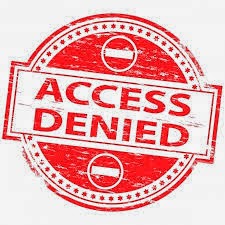Bankruptcy Schedules - Complete Disclosure of Assets Required
 The recent case of Javier Milian vs. Wells Fargo & Company, et al,, Case 13-CV-22201-KMM (February 18, 2014) illustrates the importance of a person completing his bankruptcy schedules fully and accurately - including as to unfixed and contingent claim. In this case, the doctrine of "judicial estoppel" was applied to bar the debtor from pursuing a claim against his mortgage lender as he failed to list the claim in his bankruptcy schedules. In this case, the Bankruptcy Court's decision to abstain and also apply the doctrine of judicial estoppel was upheld.
The recent case of Javier Milian vs. Wells Fargo & Company, et al,, Case 13-CV-22201-KMM (February 18, 2014) illustrates the importance of a person completing his bankruptcy schedules fully and accurately - including as to unfixed and contingent claim. In this case, the doctrine of "judicial estoppel" was applied to bar the debtor from pursuing a claim against his mortgage lender as he failed to list the claim in his bankruptcy schedules. In this case, the Bankruptcy Court's decision to abstain and also apply the doctrine of judicial estoppel was upheld.
Debtor's Question of Ownership of the Mortgage Note
The debtor/homeowner asserted a defense to Wells Fargo's mortgage foreclosure complaint that it lacked standing as it was not the "holder" of the mortgage note. The day before the foreclosure sale, the debtor pro se filed for chapter 7 bankruptcy and stayed the foreclosure sale. As part of the bankruptcy case, the debtor filed an adversary proceeding and questioned the ownership of the mortgage note by Well Fargo.
Wells Fargo moved to dismiss the adversary proceeding and also requested that the Bankruptcy Court "abstain" from hearing the case arguing that state law issues predominated over bankruptcy issues. The Bankruptcy Court found that the debtor filed the bankruptcy case for an improper purpose and that his bankruptcy schedules failed to list his claim against Wells Fargo as an asset. The Bankruptcy Court ruled that the debtor was "judicially estopped" from raising its claim against Wells Fargo and also found that it was proper that it "abstain" from hearing this claim as there was a pending state court action in which the debtor's rights were being litigated.
Abstention
The District Court held that the Bankruptcy Court's abstention was not in error. The District Court noted that all of the issues raised by the debtor in his adversary proceeding related to his assertion that Wells Fargo did not possess the mortgage note and as such belonged in the state court foreclosure case.
The District Court explained that court's have broad discretion to abstain under 28 U.S.C. § 1334 (c)(1) whenever "appropriate in the interest of justice, or in the interest of comity, or respect for state law." E.S. Bankest, LLC v. United Beverage Florida, LLC (In re United Container LLC), 284 B.R. 162, 176 (Bankr. S.D. Fla. 2002). The District Court found that the majority of the factors that the case law looks to in the determination of whether to abstain leaned in favor of abstention in the case.
Judicial Estoppel
The District Court also upheld the Bankruptcy Court's application of the doctrine of "judicial estoppel" barring the debtor's adversary proceeding. The District Court explained that the judicial estoppel is an equitable doctrine that "prevents a claim in a legal proceeding that is inconsistent with a claim taken by that party in a previous proceeding." Barger v. City of Cartersville, GA, 348 F.3d 1289, 1293 (11th Cir. 2003), Burnes v. Pemco Aeroplex, Inc., 291 F.3d 1282, 1284 (11th Cir. 2002). The District Court noted that bankruptcy petitions are required "under penalty of perjury to disclose in their bankruptcy petitions all fixed and contingent assets, including all causes of action that the debtor knows about or that exist at the time the bankruptcy action being, as well as those that the debtors learn about before the bankruptcy case is closed." 11 U.S.C. § 521. The two factors in the application of judicial estoppel in a particular case are whether the inconsistent positions were made under oath in the prior proceeding and whether the inconsistencies have been calculated to make a mockery of the judicial system.
Pro Se Litigants
The District Court's ruling is also instructive to pro se litigant - that is, persons who represent themselves in court with the assistance of an attorney. The District Court noted that "judges cannot and will not give litigants legal advice" and that a litigant does not have the constitutional right to receive personal instruction from the trial court judge on courtroom procedure. The District Court also stated that the constitution does not require a trial court judge to take over the chores for a pro se litigant that would normally be taken care of by a trained attorney. McKaske v. Wiggins, 465 U.S. 168, 183-84 (1984).
(305) 891-4055 - Jordan E. Bublick is a Miami Bankruptcy Lawyer with over 25 years of experience in filing Chapter 13 and Chapter 7 Bankrkuptcy Cases.

 Updated daily, this blog will keep you informed on the latest bankruptcy news!
Updated daily, this blog will keep you informed on the latest bankruptcy news!  Learn more about how Bankruptcy works and what you need to know.
Learn more about how Bankruptcy works and what you need to know.